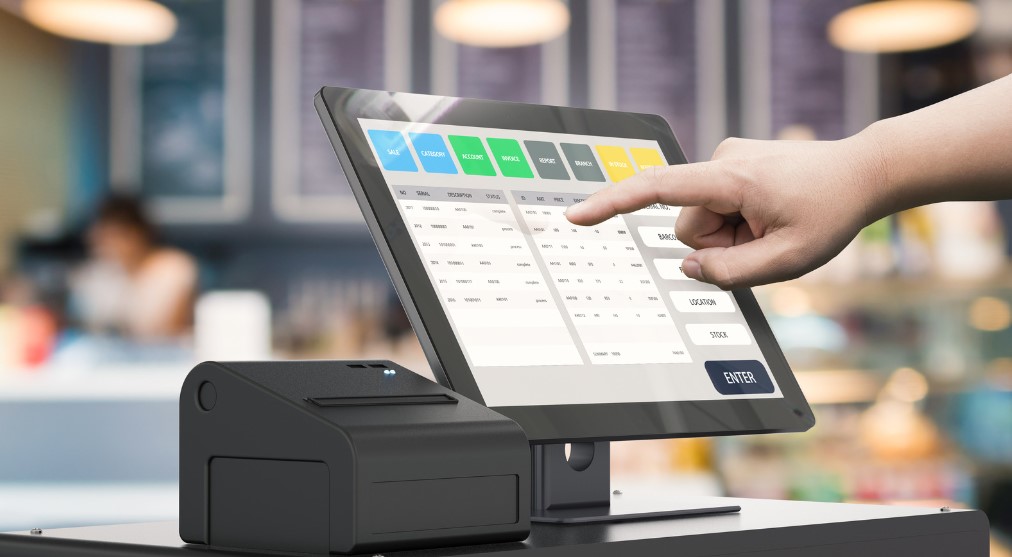A point-of-sale (POS) system is essential for small businesses as it acts as a central nervous system, handling payments, employee scheduling, inventory management, payroll, and providing sales reports. When choosing a POS system for your small business, it is important to define your business requirements, pinpoint pain points that need help, and know your budget.
How to Choose POS System for Small Business?
Consider factors like where you will be accepting payments, the number of employees using the system, and the customer experience. POS systems come with different costs including hardware, software, credit card processing fees, and more. Asking the right questions will help you find a system that automates processes, integrates with tools you already use, is simple to use, accepts various payment methods, has reliable customer support, and offers features within your budget. It is also important to choose a system that can grow with your business and has a good reputation in the market.
Define your Business Requirements
Before choosing a point of sale (POS) system, it is crucial to define your business requirements. This will help guide your search and ensure that you find a POS system that meets your specific needs. Whether you are just starting out or at a more advanced growth stage, understanding your business requirements is the first step towards making an informed decision.
If you are just starting out, a simple and easy-to-use POS system with hardware, software, and basic features may be all you need. This type of system is perfect for small businesses that prioritize simplicity and affordability. For example, an iPad or tablet-based POS system can provide the portability, ease of use, and cloud-based functionality that many small businesses require. With this type of system, you can process transactions, manage inventory, and generate sales reports from anywhere with an internet connection.
On the other hand, if your business is experiencing advanced growth and operates across multiple locations, you may require more sophisticated software that includes different user roles and can sync data across all your locations. This type of system can help you maintain consistency and streamline operations across your growing business. With user roles, you can assign specific permissions and access levels to different employees, ensuring that they only have access to the information and functionalities they need. Syncing data across locations allows for seamless inventory management, sales reporting, and customer relationship management.
Defining your business requirements is essential to finding the right POS system. Consider your current stage of growth, the complexity of your operations, and the level of control and customization you require. By understanding your needs, you can choose a POS system that aligns with your goals and helps you achieve business success.
“By understanding your needs, you can choose a POS system that aligns with your goals and helps you achieve business success.”

Key Considerations:
- Assess your current stage of business growth.
- Determine if a simple and easy-to-use system or a more advanced software with user roles and syncing capabilities is required.
- Consider the portability and cloud-based functionality of an iPad or tablet-based POS system.
- Ensure that the system can meet your specific needs regarding inventory management, sales reporting, and customer relationship management.
Pinpoint Pain Points and Areas where Help is Needed
POS systems have the ability to automate and streamline various time-consuming tasks, allowing you to focus on high-level activities and grow your small business. To optimize their benefits, it is crucial to identify the pain points and areas where you need assistance in your daily operations. These pain points could include tasks such as inventory management, employee scheduling, or specific challenges unique to your industry.
Fortunately, many POS systems offer additional apps and features that can be integrated to address these pain points effectively. These tailored solutions can help alleviate work blockages and increase overall productivity by eliminating manual processes and providing specific functionalities that meet your business needs.
Automate and Streamline Tasks
One of the key advantages of a POS system is its ability to automate and streamline various tasks. By integrating your business processes, such as inventory management, sales tracking, and customer data analysis, into a centralized system, you can achieve greater efficiency and accuracy. This automation not only saves you time but also reduces the risk of human error.
For instance, a robust POS system can automatically update your inventory levels when a sale is made, ensuring that you never run out of popular items. It can also generate real-time reports on sales and customer behavior, providing valuable insights for strategic decision-making.
Addressing Specific Features and Apps
Every business has its unique requirements and challenges. When pinpointing pain points, consider which specific features and apps would benefit your business the most.
For example, if you manage a restaurant, a POS system with menu management and table reservation features can streamline your operations, enhance the dining experience, and improve efficiency. Alternatively, if you run an e-commerce store, integrating your web hosting platform with your POS system can ensure synchronization of inventory and sales data, preventing overselling or stock discrepancies.
Alleviate Work Blockages
Work blockages can hinder your business’s growth and disrupt your daily operations. By identifying these obstacles, you can find a suitable POS system that provides the necessary solutions.
Imagine you frequently experience delays and errors during the checkout process due to a slow and outdated POS system. Upgrading to a modern POS system with fast processing times and intuitive user interfaces can alleviate these work blockages, leading to smoother operations, satisfied customers, and increased sales.
Remember, the primary objective is to find a POS system that alleviates the specific work blockages you encounter, streamlines your tasks, and allows your business to operate more efficiently and effectively.

By automating and streamlining your tasks, addressing specific pain points, and utilizing the right features and apps, you can optimize your small business operations and achieve greater success.
Know Your Budget
When selecting a POS system for your small business, understanding your budget is essential. The costs associated with POS systems can vary based on factors such as the type of hardware you choose, your sales volume, and the industry you operate in. It’s important to consider the expenses related to hardware, software, credit card processing fees, and any additional fees charged by different vendors.
Additionally, it is wise to explore affordable options that align with your budget. For instance, Square offers a free plan with no setup fees or monthly charges. Instead, merchants using Square only pay a small fee when a payment is made, making it a cost-effective solution for small businesses.

By having a clear understanding of your budget and researching different options, you can select a POS system that not only meets your business’s needs but also offers the necessary features at a price point that suits your financial capabilities.
Ask the Right Questions
When evaluating POS system providers, it is important to ask the right questions to determine if a system is the right fit for your business. By asking these questions, you can identify the differences between POS system providers and find the one that best meets your business needs.
Does the system automate processes and reduce manual inputs?
Efficiently running your small business requires automating processes to save time and reduce errors. Look for a POS system that automates tasks such as inventory management, reporting, and employee scheduling. This will streamline your operations and improve overall productivity.
Does it integrate with tools, apps, and software you already use?
Integrating your POS system with existing tools and software is essential for seamless operations. Check if the POS system integrates with your accounting software, CRM, or other business applications. This integration will ensure smooth data flow and eliminate the need for duplicate data entry.
Is the system PCI-compliant to ensure secure payment processing?
Payment Card Industry Data Security Standard (PCI DSS) compliance is crucial to protect your customers’ payment data. Make sure the POS system you choose is PCI-compliant and follows industry regulations to keep sensitive information secure.
Is it simple and easy-to-use for you and your employees?
A user-friendly POS system is essential for smooth operations and efficient training of your employees. Look for a system with an intuitive interface, easy navigation, and customizable features. This will ensure that your staff can quickly learn and utilize the system effectively.
Does it allow your business to accept all types of payments?
In today’s diverse payment landscape, it is important to accept various payment methods. Ensure that the POS system supports credit cards, debit cards, mobile payments, and other popular payment options. This will cater to a wider range of customers and help boost sales.
Can it run offline in case of no WiFi connection or data?
Unreliable internet connection can disrupt your business operations. Look for a POS system that can operate offline, allowing you to continue accepting payments even when there is no WiFi or data connectivity. This will ensure uninterrupted transactions and provide peace of mind.
What level of customer support is available, and is it available 24/7?
Having reliable customer support is crucial in case you encounter any issues or have questions regarding your POS system. Make sure the provider offers timely and responsive customer support, preferably 24/7. This will ensure that you have assistance whenever you need it.
What features are included in the plan that fits your budget?
Knowing the features included in your chosen plan is important to ensure it aligns with your budget and business needs. Review the features offered, such as inventory management, analytics, employee management, and loyalty programs. Select a plan that provides the necessary features within your budget constraints.
By asking these questions, you can make an informed decision and choose a POS system that automates processes, integrates with your existing tools and software, ensures PCI compliance, is simple and easy-to-use, accepts all types of payments, can run offline, provides reliable customer support, and offers features within your budget.
Conclusion
Choosing the right POS system for your small business is crucial for improving business efficiency and driving sales growth. By defining your business requirements and pinpointing pain points, you can find a POS system that meets your specific needs.
When making your decision, consider factors such as hardware and software costs, credit card processing fees, and the ability to integrate with your existing tools and software. Look for cost-effective solutions like Square, which offers POS systems without setup fees or monthly fees.
By selecting the best POS system, you can streamline your operations, enhance the customer experience, and contribute to the overall success of your small business. Take the time to ask the right questions and explore your options, as finding the right POS system will be a key driver of your business efficiency and growth.




